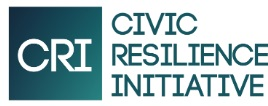In response to this problem, the Digital Ethics Centre in Lithuania has launched an initiative called “From Phones to School.” This proposal aims to create a more focused educational environment where students can fully concentrate on their studies. We spoke with Rasa Jauniškienė, one of the founders of the Digital Ethics Centre, to learn more about the goals behind this initiative.
What is the main objective and mission of the Digital Ethics Centre?
Our goal is to help people navigate the world of screens. At first, this may not seem like a major challenge – screens are a constant part of our lives, changing, increasing, or decreasing over time. However, it is a challenge because screens bring not only new opportunities but also numerous issues that we often don’t recognize or fully appreciate. By addressing these challenges, we believe it’s possible to live a better, more balanced life with screens.
What inspired the "From Phones to School" initiative?
We reached a point where we realized we couldn’t continue at the same pace as before. For the past five years, we’ve been discussing the threats, risks, and areas where we need to be more resilient and critical of screens. But we came to understand that we couldn’t move forward in peace without addressing this issue with our partners to see if they recognized the problem as well.
By the end of the year, we knew it was time to act. We immediately contacted organizations working with young people and children to see if they also saw the problem and would support our initiative. Very quickly, we received strong support from organizations such as Youth Line, Save the Children, Lithuanian Psychologists Union, Lithuanian Paediatric Association and many others. Together with these organizations, we appealed to the Seimas, the Government, the Presidency and other institutions to respond and address the problem.
We also opened the opportunity for the public to contribute to the initiative and share their views. Today, nearly 200 organizations have joined us, including public companies, institutions, libraries, educational centres, associations, and various foundations. It’s especially encouraging to see so many educational institutions, businesses, libraries, clubs, agencies, and other organizations supporting us. We have touched on a sensitive subject for which society is seeking solutions.
For educational institutions, this is a particularly challenging problem because it is complex and requires broader solutions. The "From Phones to School" initiative is only a first step. We say: we must start somewhere - at least let education be focused on learning so that children and teenagers can experience discovery and connection without digital distractions. However, in the long term, we’ll need a national education campaign, more corporate responsibility, and greater institutional involvement.
For example, in Lithuania, we currently can’t officially diagnose gaming disorder because the latest International Classification of Diseases (ICD-11) hasn’t yet been adopted. To make such changes, we need to speed up its adaptation and implementation in Lithuania. Only then will we be able to accurately assess how many people are already facing the negative consequences of screen use.
What specific measures or recommendations would you suggest to limit the use of mobile phones in schools? Would this mean that students would not be allowed to carry them at all during school hours?
We propose banning the use of mobile phones in schools, both during lessons and breaks. As far as I know, in other countries that have implemented strict restrictions, many have even taken it a step further by banning phones on school grounds entirely, and in some cases, even during field trips.
Our initial idea is that phones should be stored separately during school hours. At the end of the day, students could retrieve them and continue using them at home. However, it’s important to avoid a situation where children spend several hours without their phones and then use them excessively once school is over. Therefore, promoting awareness and helping students understand the importance of balancing screen time and screen-free time is crucial.
It is also important to emphasize that we are not proposing to abandon all technology in schools. We are specifically referring to personal smartphones, which often act as a distraction to learning. Their presence in the classroom can even lead to exclusion, as some students may have the latest models, while others may have older or no phones at all. Our message is clear: personal smartphones should not be used in schools during education.
 Rasa Jauniškienė is the founder and director of Digital Ethics Center (www.e-etika.lt). She works with researchers from Vilnius University and Lithuanian University of Health Sciences to explore how technology affects mental and physical health, focusing on reducing its negative impact on young people.
Rasa Jauniškienė is the founder and director of Digital Ethics Center (www.e-etika.lt). She works with researchers from Vilnius University and Lithuanian University of Health Sciences to explore how technology affects mental and physical health, focusing on reducing its negative impact on young people.
Digital Ethics Centre is a not-for-profit, independent organization working for the well-being of society, particularly children and young people in the digital world.
Background illustration: Syda Productions

